Patient/Caregiver Profiles
Do you have patients with agitation associated with dementia due to Alzheimer’s disease?
Outpatient care
lives with her daughter
at home

Rachel, like many caregivers, was unaware that agitation is a separate and treatable condition from dementia due to Alzheimer’s disease1,2
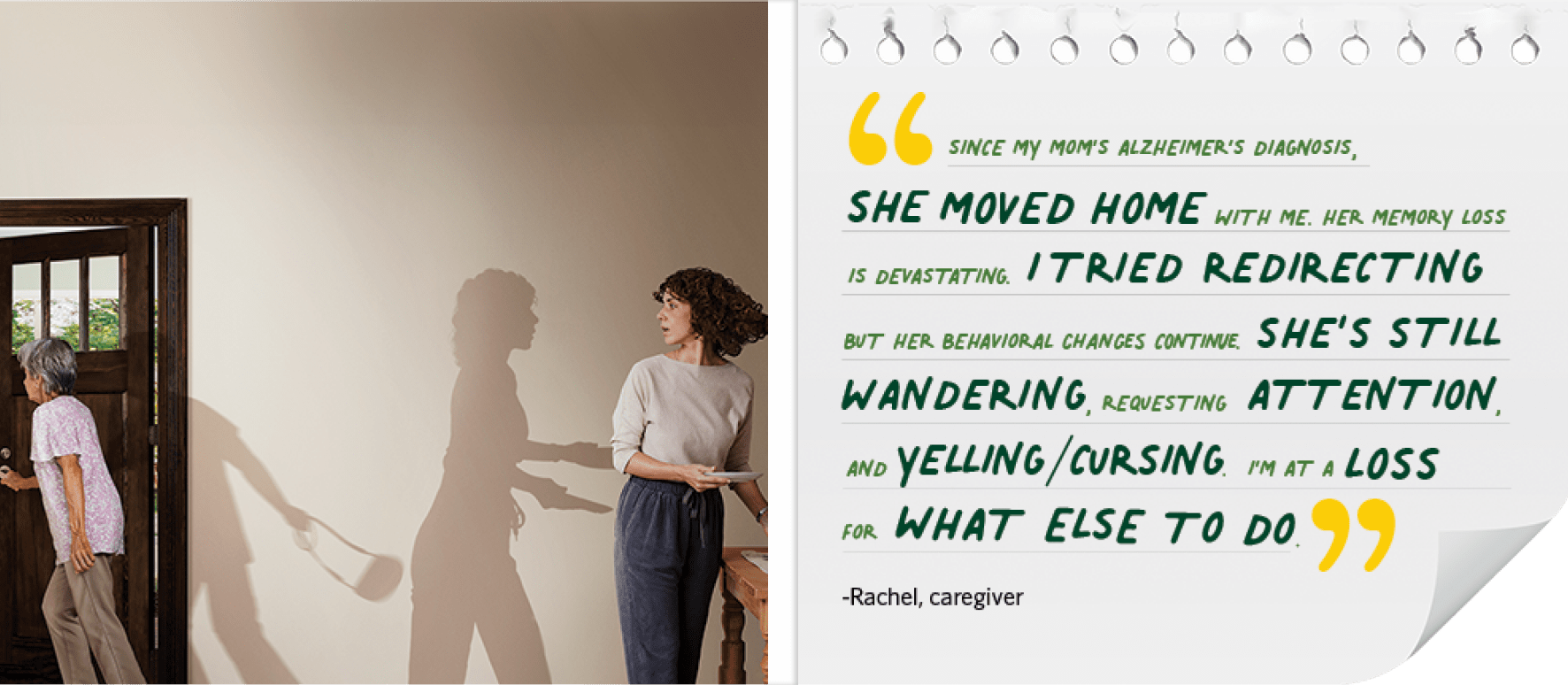
Occasionally wandering multiple times a week.
Hypothetical patient and caregiver

Repeatedly asking for attention multiple times a day.
Hypothetical patient and caregiver

Cursing or verbal aggression a few times a day.
Hypothetical patient and caregiver
Rachel, like many caregivers, was unaware that agitation is a separate and treatable condition from dementia due to Alzheimer’s disease1,2
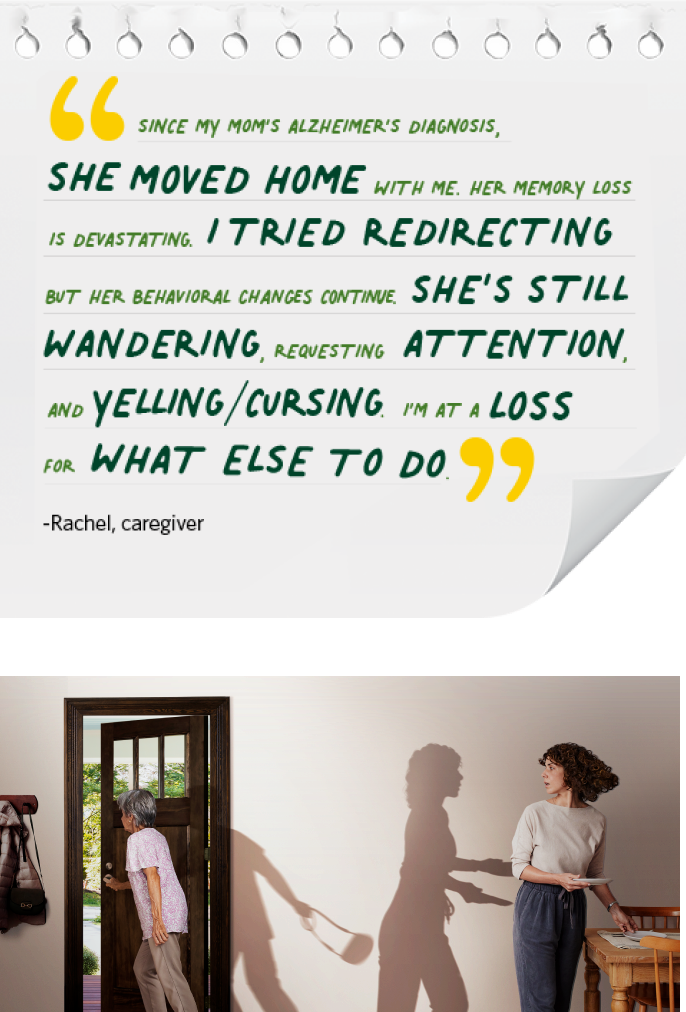
Occasionally wandering multiple times a week.
Hypothetical patient and caregiver

Repeatedly asking for attention multiple times a day.
Hypothetical patient and caregiver

Cursing or verbal aggression a few times a day.
Hypothetical patient and caregiver
Professional caregivers were unaware that agitation associated with dementia due to Alzheimer’s disease is a separate and treatable condition1,2
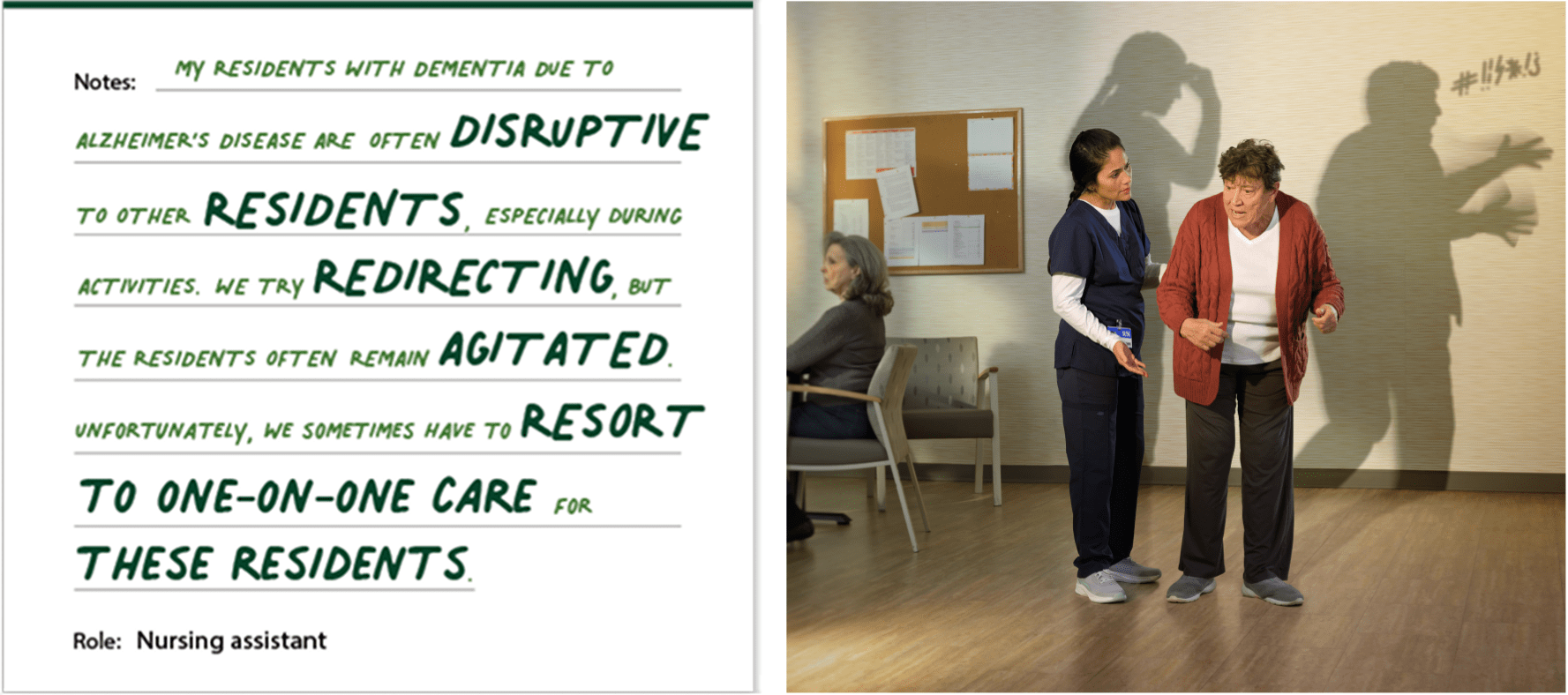
Yelling in common spaces multiple times a day.
Hypothetical resident and caregiver

Occasionally throws food at mealtimes.
Hypothetical resident and caregiver
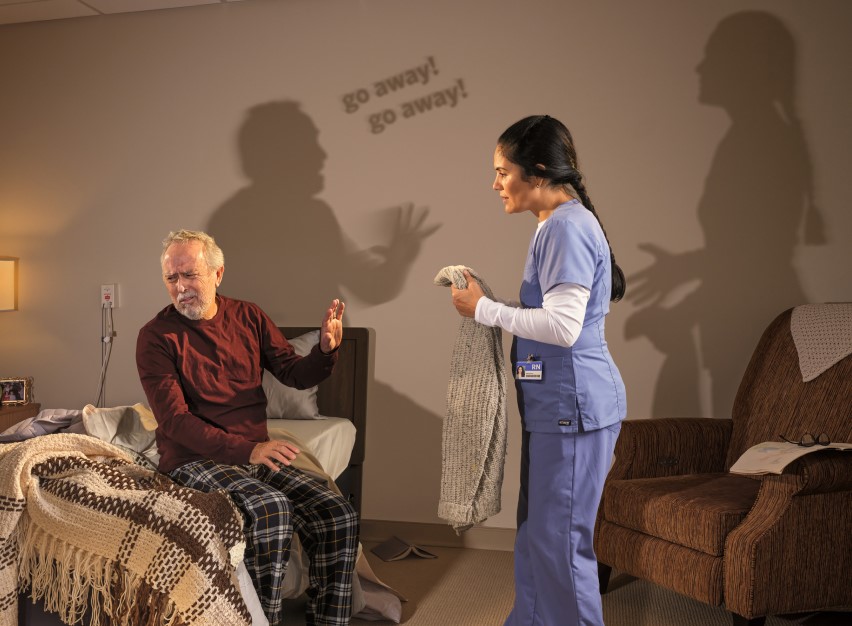
Frequently complaining during activities.
Hypothetical resident and caregiver
Professional caregivers were unaware that agitation associated with dementia due to Alzheimer’s disease is a separate and treatable condition1,2
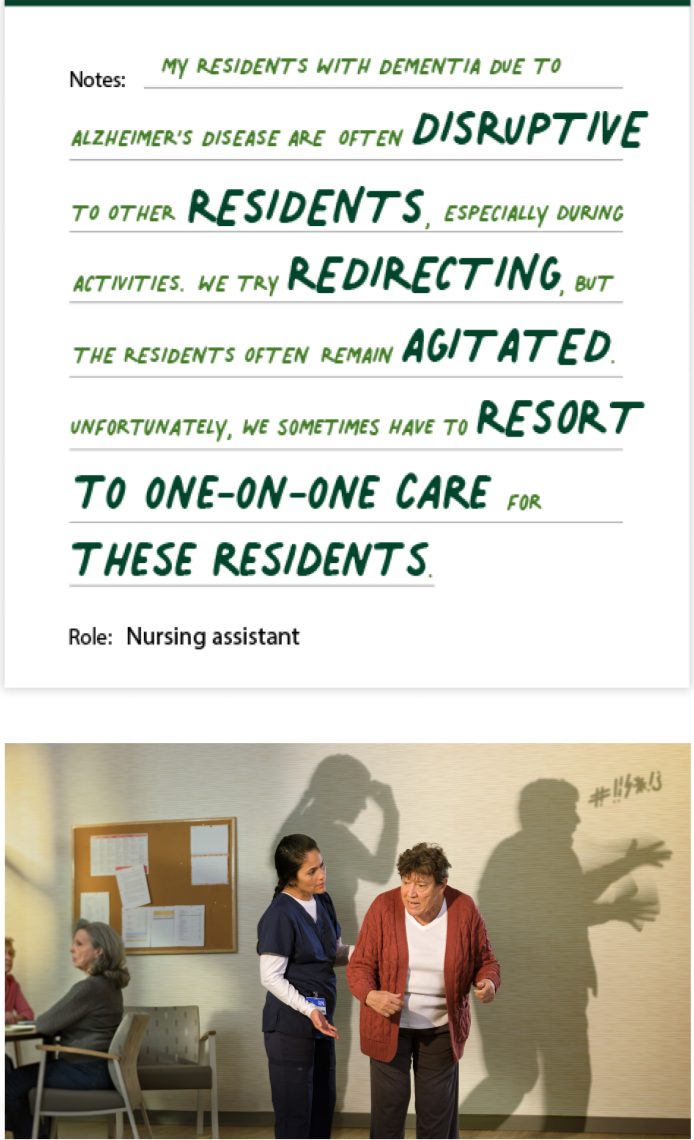
Yelling in common spaces multiple times a day.
Hypothetical resident and caregiver

Occasionally throws food at mealtimes.
Hypothetical resident and caregiver
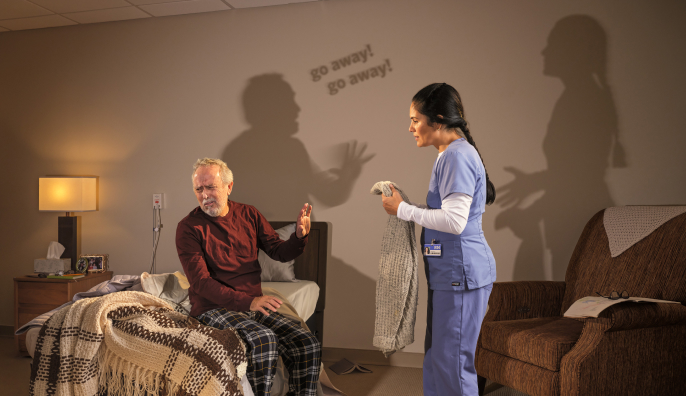
Frequently complaining during activities.
Hypothetical resident and caregiver
References: 1. Jones E, Aigbogun MA, Pike J, et al. Agitation in dementia: real-world impact and burden on patients and the healthcare system. J Alzheimers Dis. 2021;83(1):89-101. 2. Koenig AM, Arnold SE, Streim JE, et al. Agitation and irritability in alzheimer's disease: evidenced-based treatments and the black-box warning. Curr Psychiatry Rep. 2016;18(1):3.

